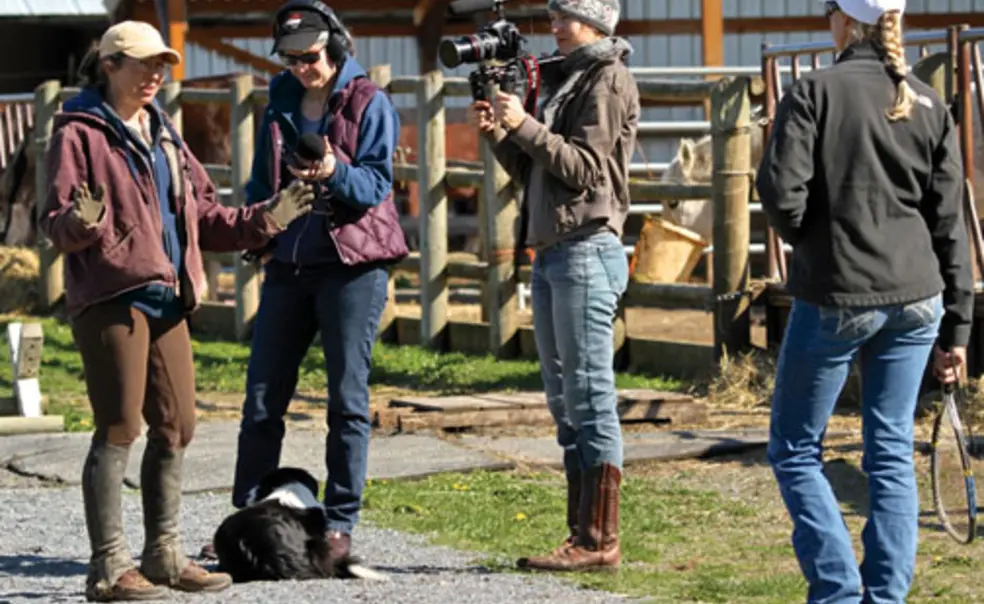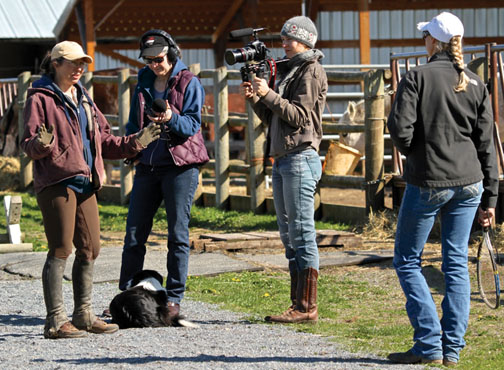Josephine Decker ’03: A Rising Indie Filmmaker
A young artist who explores vulnerability, failure, and dark endings is getting noticed
A dark, erotic thriller set on a farm in the wilds of Kentucky, Thou Wast Mild and Lovely is the latest film by Josephine Decker ’03. The film, which is expected to debut in late 2014, follows a young, bewitching woman, her creepy father, and a mysterious married man who visits their homestead. Seduction and horror intertwine in the film, which was inspired by John Steinbeck’s East of Eden. You’re never quite sure what’s real, what you’ve imagined, or what will happen next.
Decker, a rising indie filmmaker, is known for her exploration of fantasy, sexuality, and loss. In July, Filmmaker Magazine named Decker one of the 25 “new faces of independent film” — what the magazine called its “bets on the filmmakers of tomorrow.”
“[Filmmaking] is adventure,” says the Brooklyn-based Decker. “I love that filmmaking is a big excuse to venture into so many different interests.”
Decker’s interests are varied indeed. Over the years, she has explored the rise of bisexuality in America in the documentary Bi the Way (which she co-directed), childhood wonder in her short film Me the Terrible, and female friendship and Balkan folk music in the feature Butter on the Latch, which is making the festival rounds. New Yorker writer Richard Brody praised Butter on the Latch as “an utter exhilaration of cinematic imagination, a pure high of invention.”
Much of Decker’s work is devoted to the exploration of vulnerability and failure, and her films present characters as raw and exposed. She emphasizes dark endings because, as she puts it, “the best happy ending you really get in life is an acceptance of all of the sad endings.”
Decker also produces performance art, from balancing a bucket of oil-like liquid on her head in Times Square to call attention to BP’s 2010 oil spill (SpilLover) to orchestrating the “migration” of humans dressed as fish over the Brooklyn Bridge in response to the effect of climate change on marine life (Evacuation).
In an incident in 2010 that resulted in her being banned from New York’s Museum of Modern Art, she stripped naked when it was her turn to “interact” with performance artist Marina Abramović. When asked why she did it, Decker says it was simply “a good way to show [Abramović] that her work affected me really deeply — and to thank her.”
To make ends meet, she cobbles together contract jobs, including acting, SAT tutoring, and making videos for nonprofits. The actors in her films often work for free or deferred pay, and she drums up funding for films via a network of individual investors and through Kickstarter, an online fundraising platform.
For her next film project, Decker wants to delve into the world of professional clowning — a topic that blends her interests in vulnerability and audience participation.
“Since I’m not making movies for $10 million, I just follow what I’m really curious about,” she says. “I have this theory that all directors are telling the same story again and again. I wonder what my story will be.”













No responses yet